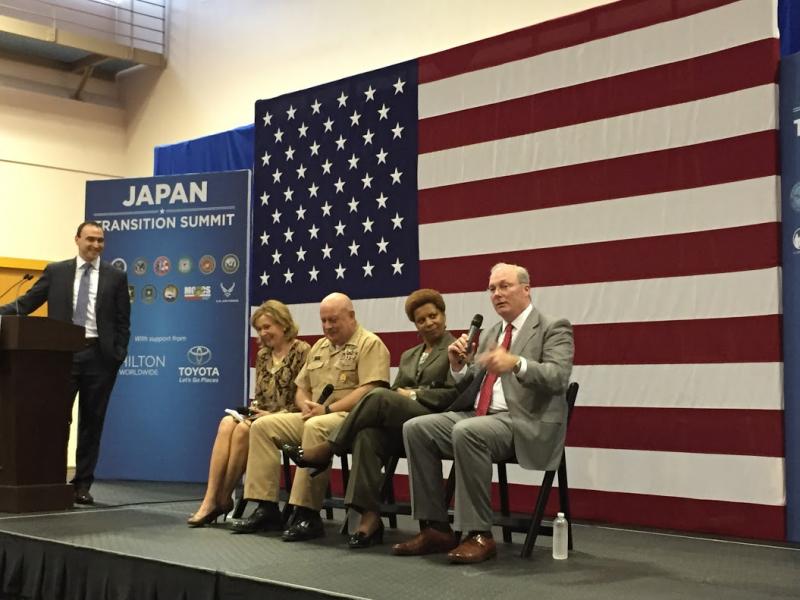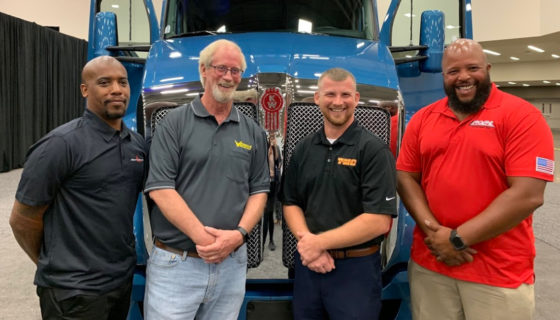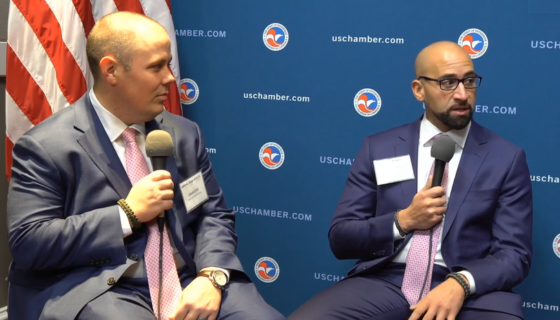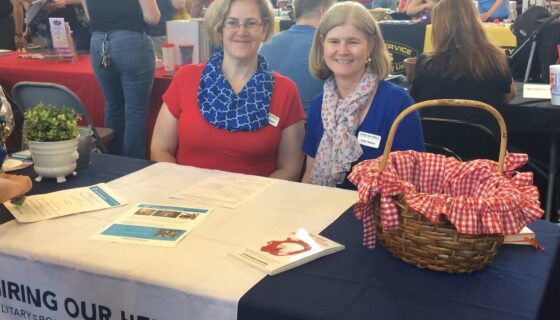Hiring Our Heroes Hosts Japanese Summits

Earlier this month, the Chamber Foundation’s Hiring Our Heroes (HOH) traveled overseas to support U.S. troops based in Japan. The trip was part of the Japanese Theater Transition Summits, an effort to bring all of the private sector and nonprofit resources frequently available to service members in the U.S. to our service members and military families in Japan.
HOH has partnered on similar overseas summits held in Germany and Italy, and we have seen firsthand how eager the base communities were to have access to the same programs helping their counterparts in the States.
Over the course of the week, HOH worked with strategic partners to host a series of events at U.S. Fleet Activities Yokosuka and Marine Corps Base Camp Butler, Okinawa. Nearly 500 service members and military spouses connected with employers, both in-person and online, during the summit. Each stop featured panel events with key federal and state agencies, influential military leaders, business leaders, and local community groups; workshops for recruiters seeking to hire veterans and military spouses; and roundtables focused on improving the transition from the military to the civilian workforce.
At MCB Camp Butler on Okinawa, Medal of Honor recipient Marine Sgt. Dakota Meyer led the first overseas transition workshop of the Hiring Our Heroes Education Tour.
Sgt. Meyer was actually serving with an embedded training team from the III Marine Expeditionary Force out of Okinawa when he performed the actions for which he received the Medal of Honor. Last week, he returned with a personal mission.
“What are the things I wish I had known when I got out? That question drove the creation of the Hiring Our Heroes Education Tour, a nationwide effort to get our service members thinking early and seriously about their next steps.”
The workshop curriculum—tailored specifically towards service members who are 12 to 18 months away from military separation—is based heavily on Sgt. Meyer’s own transition as a post-9/11 veteran. His ultimate goal is to help service members better understand the value of their military experience and how it can translate to direct employment, entrepreneurship, or education.
Summit partners included the U.S. Department of Veterans Affairs, the U.S. Department of Labor, the U.S. Department of Defense’s Transition to Veterans Program Office (TVPO), the U.S. Army’s Soldier for Life and Installation Management Command, the U.S. Navy, the U.S. Air Force, the U.S. Marine Corps, and the U.S. Coast Guard.



